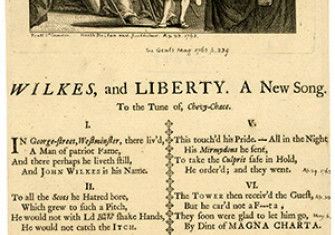John Wilkes’ Way
Secrecy shrouded the ways of politicians until the 18th century. Then John Wilkes came along, writes David Horspool.
Nowadays, if you want to know what parliamentarians have been up to, in public at least, there are a number of ways of going about it. You can visit the House of Commons, read reports and sketches of proceedings in the newspapers, or follow them on radio, television and online. This openness is what made it seem all the more reprehensible that, if some MPs had got their way earlier this year, the scandal of their expenses might have remained Parliament's dirty secret. The proposed attempt to resist extending the Freedom of Information Act to cover Members' finances looked like a rejection of a vital principle of parliamentary government: that our representatives must conduct their affairs in public view.







